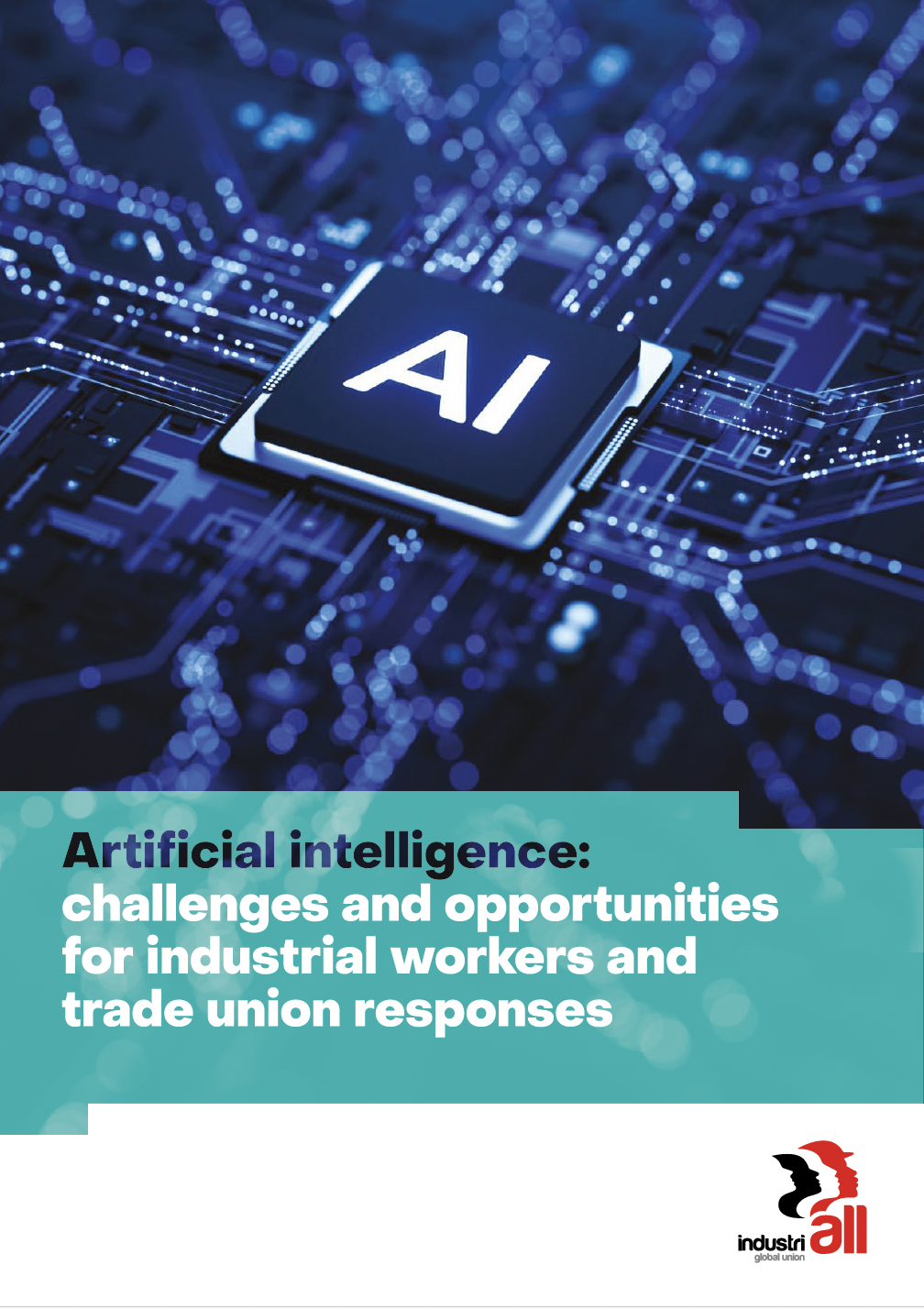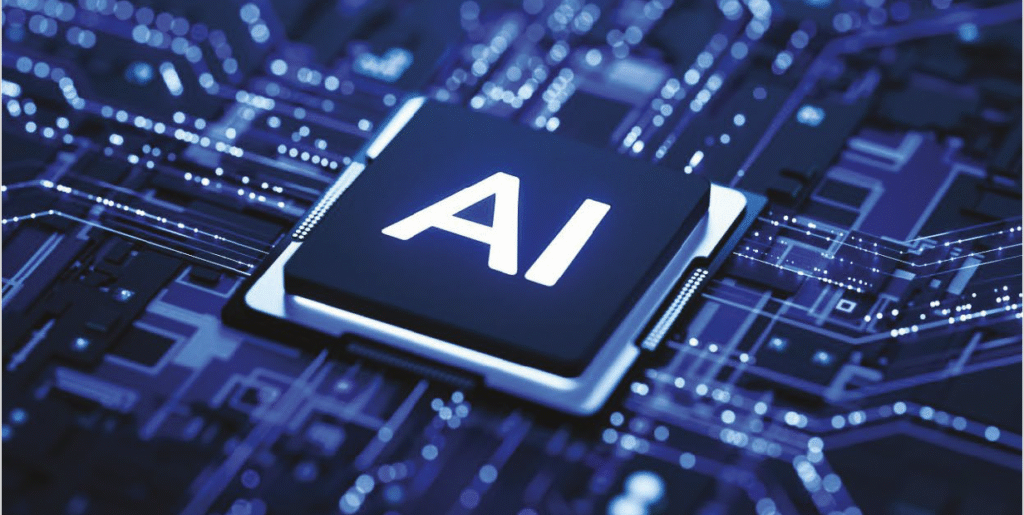8 October, 2025IndustriALL has released a new policy paper on Artificial Intelligence (AI): challenges and opportunities for industrial workers and trade union responses, setting out a strategy for how trade unions can respond to the fast digital transformation reshaping workplaces worldwide.
| Artificial Intelligence (AI): challenges and opportunities for industrial workers and trade union responses (ENGLISH) |
 |
“AI is no longer a distant prospect, it is already transforming industrial sectors through automation, robotics and data-driven management systems. This new policy paper is both a warning and a guide: a resource to help unions navigate the risks and harness the opportunities of AI while protecting workers’ rights, dignity and jobs,”
said Kan Matsuzaki, IndustriALL assistant general secretary
Putting workers at the centre of technological change
As the paper explains, artificial intelligence is redefining how work is organized, monitored and valued. Many workers now find themselves managed by algorithms that determine schedules, track performance and even influence hiring and promotions, often without transparency or accountability.
Meanwhile, governments and companies still lack adequate regulations to ensure fairness, there are still very few collective agreements that address AI directly. The result is an uneven playing field where corporate profits rise, but many workers face insecurity, discrimination and intensified surveillance.
IndustriALL’s policy paper outlines a clear roadmap to change this, ensuring that technological progress goes hand in hand with decent work, equality and a Just Transition.
Five key areas for trade union action
The document identifies five priority areas where unions must act:
- Algorithmic management and data privacy to ensure transparency, accountability and limits on workplace surveillance.
- Quality jobs and skills to guarantee access to lifelong learning, inclusive reskilling and Just Transition support.
- Occupational health and safety to make AI a tool for safer, healthier workplaces, not one that adds new stress or risks.
- Redistribution of wealth and productivity, demanding fair profit-sharing, progressive taxation and stronger social protection.
- Workers’ rights and collective bargaining to protect the right to organize, strengthen legal safeguards and equip union representatives to negotiate in the digital era.
A global, sectoral and national roadmap
The policy paper calls on unions to act at every level to ensure AI benefits workers:
- Globally, by influencing international standards at the ILO and OECD, coordinating with global union federations and demanding fair AI governance;
- Sectorally, by negotiating responsible AI implementation, forecasting skills needs and ensuring no worker is left behind;
- Nationally, by advocating for inclusive AI policies, tripartite social dialogue and cross-sector union solidarity.
AI must serve people, not profit
The paper concludes that AI can be a catalyst for worker empowerment, or a driver of inequality and union repression, depending on how it is governed.
Unions have a decisive role to play in shaping that future: demanding transparency, ensuring workers share in productivity gains and embedding AI within a framework of social justice and democratic oversight.
“Through strong international solidarity and collective bargaining, IndustriALL and its affiliates can make sure that AI becomes a tool for decent work and sustainable industry, not another engine of exploitation,”
says Matsuzaki.
